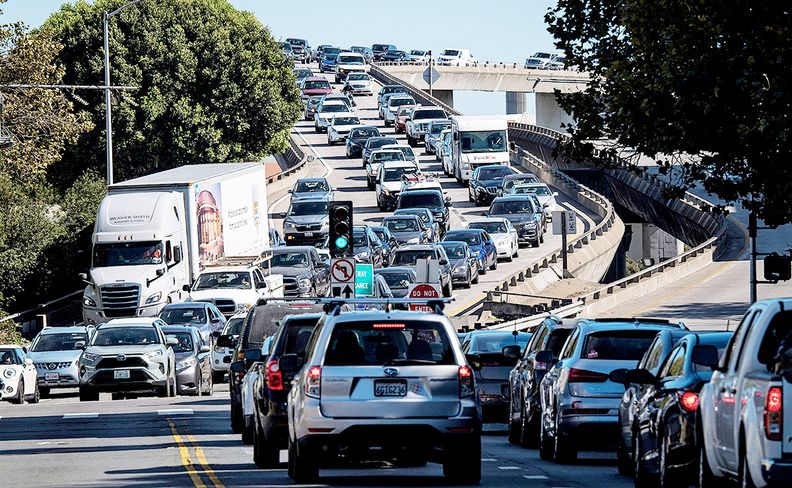The California Air Resources Board, which approved the plan in August, asked the Environmental Protection Agency on Monday to approve a waiver under the Clean Air Act to implement its new rules.
The state of California has asked the Biden administration to approve its plan to require all new vehicles sold in the state by 2035 to be either electric or plug-in electric hybrids, according to a letter seen by Reuters.
The California Air Resources Board, which approved the plan in August, asked the Environmental Protection Agency on Monday to approve a waiver under the Clean Air Act to implement its new rules that set yearly rising zero-emission vehicle rules starting in 2026 and would end new gasoline-only powered vehicle sales in the state by 2035.
“These vehicles will permanently displace emissions from conventional vehicles,” wrote CARB Executive Officer Steven Cliff, adding that motor vehicles and other mobile sources are the greatest producers of emissions in California.
The Biden administration has repeatedly refused to endorse setting a date to phase out the sale of gasoline-only vehicles.
EPA spokesperson Tim Carroll said, “As with all waiver requests from California, we’ll follow an open public process in considering it, as the agency routinely does.”
In a Reuters interview last month, EPA Administrator Michael Regan declined to say how the EPA would react to a California request. “We’ll be on the lookout for that if it were to ever come,” Regan said.
Under an EPA proposal released in April to drastically cut vehicle emissions through 2032, automakers are forecast to produce 60 percent EVs by 2030 and 67 percent by 2032 to meet requirements, compared with just 5.8 percent of U.S. vehicles sold in 2022 that were EVs.
California’s zero-emission rules will cut by 25 percent smog-causing pollution from light-duty vehicles by 2037. The rules mandate that 35 percent of the new cars sold be plug-in hybrid electric, EVs, or hydrogen fuel cell by 2026. That proportion will rise to 68 percent by 2030 and 100 percent by 2035.
The 60-page California waiver request seen by Reuters says through 2040, California’s zero-emission rules will cost $210.35 billion but have total benefits of $301.41 billion.
A growing number of states are adopting California’s EV rules that are more stringent than what the Biden administration has proposed. This month, Rhode Island joined Washington, Virginia, Vermont, Oregon, New York, and Massachusetts in adopting the California requirements.
CARB’s regulation would allow automakers to sell up to 20 percent plug-in hybrid electric vehicles by 2035 and by then would need a minimum 50-mile all-electric range label to qualify.
Source: Automotive News

